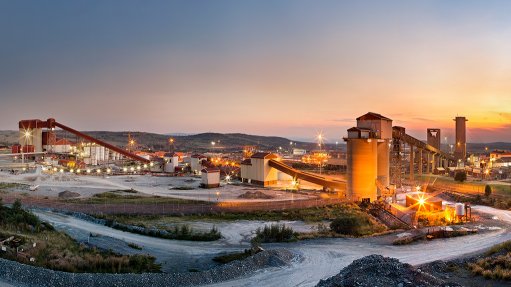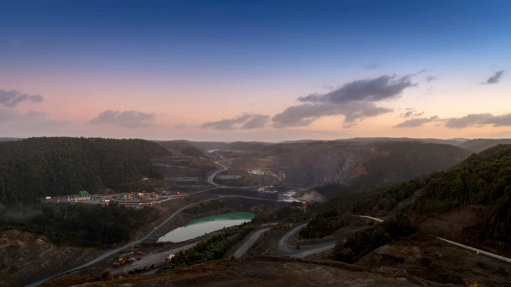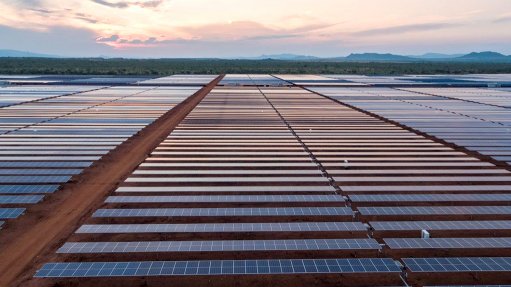Proactive prevention key to fighting corruption risk



CKR Global's Maggy Wilkinson (left) and Casie Neitzke (right).
Photo by CKR Global
Photo by Reuters
TORONTO (miningweekly.com) – In light of the first sentencing of an offender under Canada’s Corruption of Foreign Public Officials Act (CFPOA) on Friday, Canadian extraction companies have to heed the warning and take proactive steps to ensure their compliance with anticorruption and bribery rules to avoid finding themselves in hot water.
Despite three other companies having previously pleaded guilty under the CFPOA, this was the first case to go to trial and the first conviction of an individual under the Act.
The trial concluded with a conviction on August 15, 2013. Justice Charles Hackland of the Ontario Superior Court found Canadian businessman Nazir Karigar guilty of agreeing with others to offer a bribe to an Air India official and another Indian government official, contrary to the provisions of the CFPOA.
Karigar was sentenced to three years imprisonment on Friday.
EXTREME RISK
The head of corruption risk management at Canadian risk mitigation firm CKR Global, Margaret Wilkinson, told Mining Weekly Online that the resource extraction industry as a whole was at an extreme risk to bribery and corruption of officials, especially owing to the often isolated and foreign underdeveloped locations of the companies’ projects.
“One of the most critical steps to prevent exposure to these threats is to proactively put in place measures and policies to encourage employees to steer clear of shady deals,” Wilkinson said.
From her work managing numerous anticorruption compliance programmes and cross-jurisdictional investigations, Wilkinson noted that she had found that the oil and gas industry seem to have gained a lead over the mining industry when it comes to transparency and compliance with anticorruption laws and statutes.
The apparent reason for this is the fact that the oil and gas industry had been under closer scrutiny in the past owing to the far-reaching influence and value of its products.
“From a Canadian perspective, oil and gas companies are more likely to comply with transparency rules, owing to most of them having more exposure to the Foreign Corrupt Practices Act (FCPA) in the US, and similar, newer laws in the UK, which had resulted in them being a little more ‘buttoned-up’ on compliance,” she said.
However, Wilkinson added that there is a perceived renewed and increased appetite for obedience among miners, as transparency compliance enforcement had been receiving more media attention, spurred by high-profile corruption cases such as Canadian natural gas company Niko Resources in 2011 pleading guilty to corruption charges in Alberta, for bribing a Bangladeshi official with a $190 000 Toyota Land Cruiser to secure rights.
The Royal Canadian Mounted Police (RCMP) had also made an effort in recent months to educate companies more on the CFPOA, which was enacted in 1998. The Act was perceived to lack teeth for some time, with loopholes and jurisdictional limitations severely limiting its effectiveness, and as a result, very few cases were brought over the years.
However amendments to the CFPOA that came into effect in June last year, had transformed the CFPOA into a law that mirrors the FCPA in most respects, which had already enabled the RCMP to step up investigations and increase the number of corruption-related prosecutions in Canada.
Wilkinson noted that the imminent implementation of the Dodd–Frank Wall Street Reform and Consumer Protection Act’s conflict mineral rule at the end of the month would make significant strides to force miners to act in more responsible ways.
According to her, about 6 000 companies listed in the US would be impacted by the Act, costing them about $3-billion to comply. The rule is aimed at stopping companies from buying minerals from certain countries where rebel groups illegally profit from the minerals trade to fund their violent causes.
MITIGATION STEPS
Wilkinson noted that for juniors in the mining space, it is of critical importance to ensure they comply with all applicable anticorruption laws when acquiring properties and projects from the earliest stages, saying that when the time comes in the future to sell part or whole of the project to a partner or senior company, noncompliance issues might be a deal breaker, or result in significantly reduced prices and delays.
“Canadian extraction companies need to take steps to manage their corruption risk, but companies do not always understand how these measures would impact their day-to-day operations,” Casie Neitzke told Mining Weekly Online.
Brought on board CKR Global’s corruption risk management team in response to increased demand from clients in the extractive sector to manage risk exposure on foreign soil, Neitzke listed several things companies could do to reduce their exposure to potential corruption.
She said companies should make sure they conduct due diligence, to precisely understand what the particular business is and how it operates, and design mitigation programmes accordingly to address weaknesses.
“Also, it is critical to know where the local government contact points are to foster awareness of potential transparency regulations applicable to the company, who the government officials are that employees are going to interact with, and whether that interaction would be on a company level, or through a joint venture partner or contractor representing the company,” she noted.
Companies with foreign operations also need to have formalised policies and a code of ethics in place and make sure that once a programme is in place, it is communicated well throughout the whole organisation so that people understand and follow it.
According to her, the first line of defence to ensure compliance with anticorruption rules is to implement internal, company-wide compliance programmes, which, if done well, should be able to detect most financial anomalies without serious consequences for the company.
However, this is not always done correctly, and a second line of risk mitigation is to enable an environment within the company to ensure whistle-blowers are protected. Failing that, a company would most likely become aware of its corrupt dealings through an official investigation by a foreign government, or for example the RCMP, if domiciled in Canada.
Neitzke notes that corruption is also often detected through word-of-mouth and in the small talk among boasting employees.
“It is critical to create the right corporate environment in order to encourage ethical behaviour,” Wilkinson added.
CKR METHODOLOGY
CKR has recently launched a line of services to meet the evolving regulatory and compliance needs of Canadian business.
The firm has a unique audit methodology that is able to detect the smallest amounts of anomalous spending. “We track all payments, and as soon as a red flag is raised, we start digging deeper to find the cause of the anomaly,” Wilkinson said.
Dovetailing with CKR’s established investigations and risk management divisions, the CKR corruption risk management team provides clients with practical, operationally achievable solutions to proactively mitigate their corruption risk.
The team comprises a multidisciplinary team of forensic accountants, compliance personnel, operations specialists, data experts and investigators with practical experience in Canada and abroad.
The firm’s suite of services includes mitigating measures such as compliance programme design, implementation and testing, risk assessments, transactional and regulatory due diligence, board advisory and employee training.
“The new CKR service line is ideal for Canadian companies seeking to implement best practices and comply with changing regulations,” she said.
Comments
Press Office
Announcements
What's On
Subscribe to improve your user experience...
Option 1 (equivalent of R125 a month):
Receive a weekly copy of Creamer Media's Engineering News & Mining Weekly magazine
(print copy for those in South Africa and e-magazine for those outside of South Africa)
Receive daily email newsletters
Access to full search results
Access archive of magazine back copies
Access to Projects in Progress
Access to ONE Research Report of your choice in PDF format
Option 2 (equivalent of R375 a month):
All benefits from Option 1
PLUS
Access to Creamer Media's Research Channel Africa for ALL Research Reports, in PDF format, on various industrial and mining sectors
including Electricity; Water; Energy Transition; Hydrogen; Roads, Rail and Ports; Coal; Gold; Platinum; Battery Metals; etc.
Already a subscriber?
Forgotten your password?
Receive weekly copy of Creamer Media's Engineering News & Mining Weekly magazine (print copy for those in South Africa and e-magazine for those outside of South Africa)
➕
Recieve daily email newsletters
➕
Access to full search results
➕
Access archive of magazine back copies
➕
Access to Projects in Progress
➕
Access to ONE Research Report of your choice in PDF format
RESEARCH CHANNEL AFRICA
R4500 (equivalent of R375 a month)
SUBSCRIBEAll benefits from Option 1
➕
Access to Creamer Media's Research Channel Africa for ALL Research Reports on various industrial and mining sectors, in PDF format, including on:
Electricity
➕
Water
➕
Energy Transition
➕
Hydrogen
➕
Roads, Rail and Ports
➕
Coal
➕
Gold
➕
Platinum
➕
Battery Metals
➕
etc.
Receive all benefits from Option 1 or Option 2 delivered to numerous people at your company
➕
Multiple User names and Passwords for simultaneous log-ins
➕
Intranet integration access to all in your organisation




















